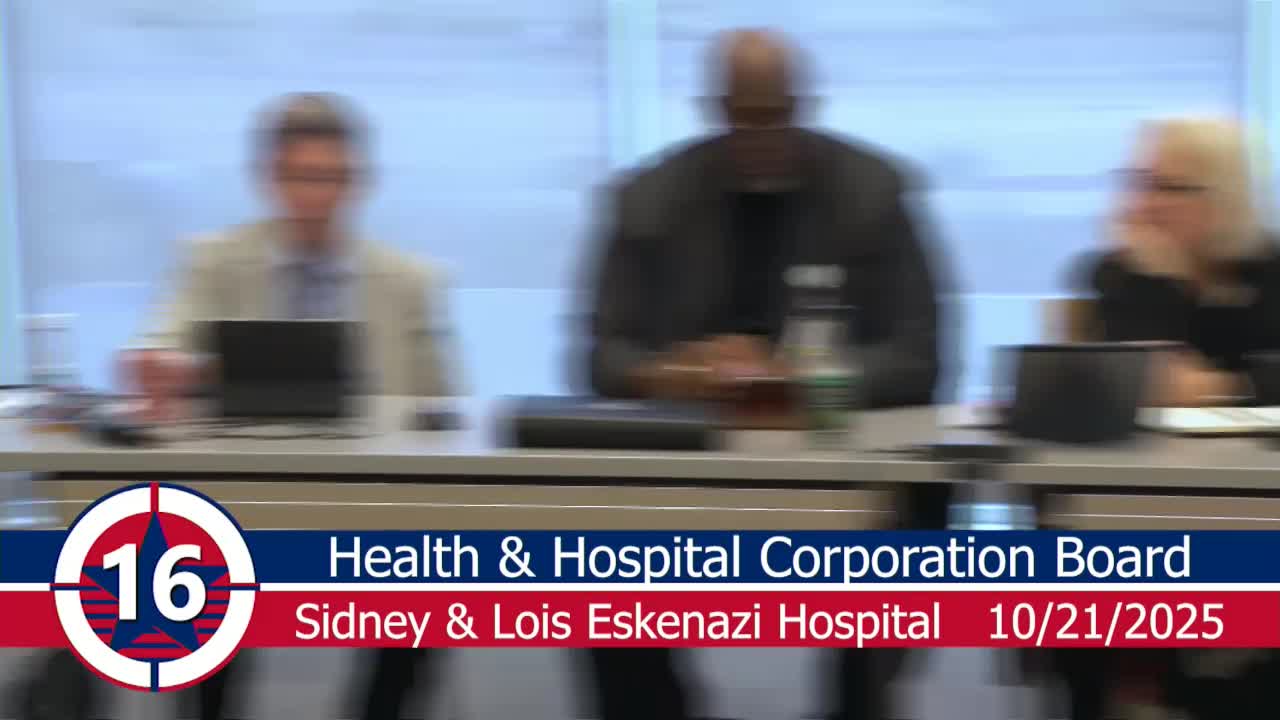Eskenazi Health highlights workplace‑violence risks, expands security measures and staff training
Get AI-powered insights, summaries, and transcripts
Subscribe
Summary
Eskenazi Health presented the board with data and mitigation steps on workplace violence affecting healthcare staff, describing expanded security presence, panic‑button technology and AVADE training for thousands of employees.
Eskenazi Health leaders told the HHC board that workplace violence is a significant risk for healthcare workers and described steps underway to harden facilities and train staff.
A presenter identified as Dr. Harris said workplace safety is one of the organization’s greatest risks. He reported that healthcare workers are “five times more likely to experience workplace violence than workers in other industries” and noted 2018 national data showing healthcare accounted for 73 percent of nonfatal workplace‑violence cases. He emphasized staff safety while also praising staff efforts to deescalate incidents and to care for patients.
The Eskenazi presentation described a range of security and training measures: posted and monitored security cameras at campus entry points, metal detectors at multiple points on the hospital campus and at the Grandy Health Center, Centrac geo‑monitoring buttons on staff badges, ASCOM phones with single‑button security calls, and more than 2,200 panic buttons deployed across facilities. The presenter said security staff have been integrated more fully into the caregiving team and that security presence is deployed both on a fixed and rotating basis across hospital and outpatient sites.
Staff training was emphasized: Eskenazi leaders described an AVADE program (awareness, vigilance, avoidance, defense and escape) and said they have conducted 191 AVADE classes and trained more than 3,500 of roughly 5,000 Eskenazi employees. The presenter also noted metal detectors and other access controls have required a cultural shift because the organization’s traditionally accommodating culture can lead staff to allow uncredentialed entry.
Why it matters: Escalations of workplace violence can affect staff safety, retention and the continuity of care. Eskenazi has increased security and training resources and is tracking incidents, safety technology and staff readiness as part of risk management.
